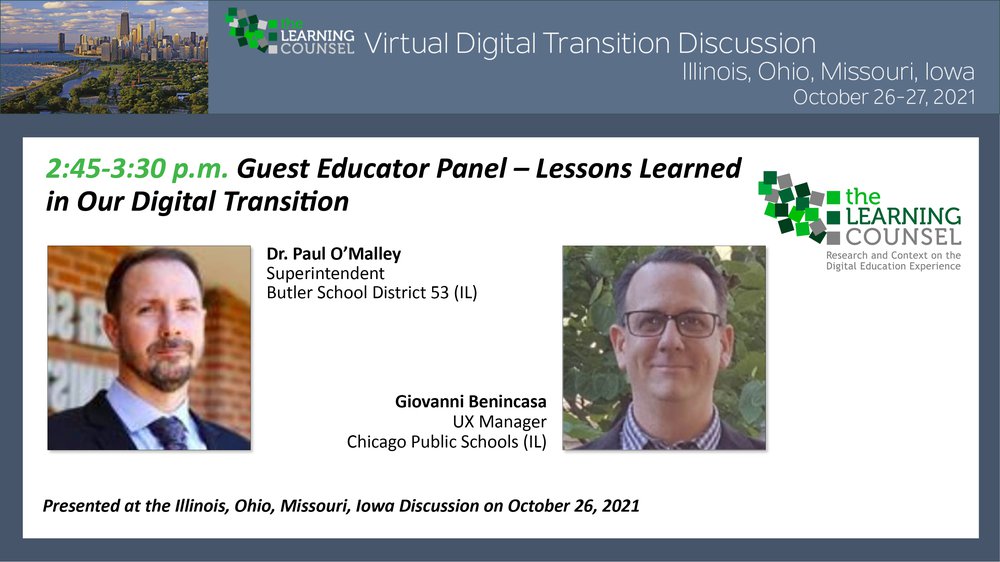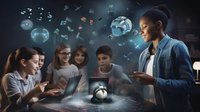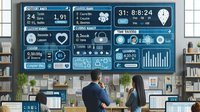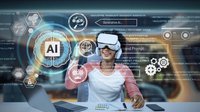Attendees love our “Guest Educator, Lessons Learned in Our Digital Transition” panel discussions. In particular, they love the absolute openness in which the discussion is shared. Very often, lessons learned come with a bit of pain, but always with the joy of sharing a better way to deliver learning to our students, teachers and communities.
In this panel discussion, Dr. Paul O'Malley, Superintendent at Butler School District 53 and Giovanni Benincasa, UX Manager at Chicago Public Schools lay it on the line for America’s educators. In one of the lessons, according to Giovanni Benincasa, “We've lived several lifetimes, I think, since a couple of years ago in Dallas. Chicago was able to launch Skyline in a remote learning context. One of the more surprising questions was why doesn't the digital curriculum just translate to remote learning? And so much of the feedback that we collected from teachers as we were building it out, centered the learning in small groups in pair shares, it wasn't meant to be students on screens. So that was one of our biggest misconceptions. Having a digital curriculum meant while that would be students being able to do all of their work on a computer. That was a confusion at the start. And it's continued even now that we've returned to school where teachers who are adopting are actually quite surprised how much learning is occurring off screen, so it's probably better to characterize Skyline as a digitally delivered curriculum, instead of a digital curriculum.
“Having said that, a lot of perceptions changed in remote learning in terms of teaching with the technology. And a lot of infrastructure within the schools is lagging what folks even had available to them at home. So, the implementation has had a challenge in schools, which before the COVID crisis were under resourced, had infrastructure upgrades that would be needed. But as far as the teachers, what they are finding is front and center in what we've been able to develop for them, they're finding the work engaging. It's rare to have anything that's got digital associated with it come back with a top-line takeaway. Students are finding this to be very engaging, but again, it's because of the blending, the hybridization, the fact that it's not all digital, it's not all analog, it has space for student reflection.”
According to Dr. O’Malley, “In the very near future, you're going to be able to know exactly or pinpoint where the personalization is necessary for the student to be on a trajectory to proficiency. There's just no doubt in my mind. The question is, do we have the intestinal fortitude, the patience to be able to see this come to fruition sooner rather than later? And the analogy I use there is the universities have been doing personalized learning for years. Harvard has been doing it for years. You can get a degree from Notre Dame driving down I- 294 that can be online. You have schools that are far, far behind because there's so much more that has to go into the many different issues that we have as a school district or school districts. And so, what you're hearing here is you have one of the smallest districts in the state of Illinois, which is our district, and you have the largest district in the state of Illinois, which is Chicago. And we could see that the ability for CPS to garnish their authority is far greater than ours is that's for sure.
“We have to fight tooth and nail just to be noticed. And it's a good thing because what we do is we rely heavily on the personalization. We rely heavily on the teachers that are doing the work, and we're able to get feedback much quicker. The feedback loop is as far greater. However, our platform is literally the slowest piece of this to move forward. And you know, I just like what I'm hearing, because it's highly likely we're going to be able to inherit because we know these companies work with CPS. We know we're going to inherit these practices much sooner, which will then us really at a point that two points are going to meet, which will be powerful, and we're going to provide the connection of the AI with that personalization. You're always going to need that human intervention. You're always going to need the high five, the fist bumps. Those are always going to be a part of who we are.”
The discussion continues, unvarnished and unfiltered. These two leaders lay it on the line, not only discussing the lessons they have learned, but doing so in a kind of refreshing honesty that is rare in public discussions. Their lessons learned can be your lessons learned, minus the time and hardship and sacrifice it took to learn them. It’s educational ‘money in the bank,’ and you can deposit it in your own school or district immediately.










